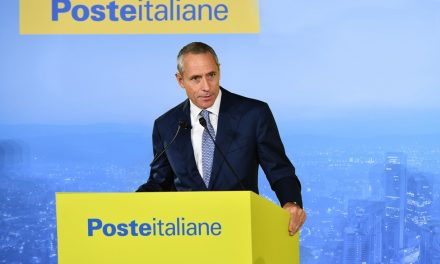
Tories plan to sell off all of strike-hit Royal Mail
The Conservatives are backing the total privatisation of Royal Mail and believe bidders will be more willing to come forward if the dispute ends with the union forced to accept modernisation, reports The Guardian. The article continues:
The move risks further inflaming the increasingly bitter dispute as the second wave of national strikes kicked off today after last-ditch talks collapsed on Wednesday.
Billy Hayes, the Communication Workers Union leader, raised the prospect of longer strikes although the union’s postal executive held back from naming fresh strike dates amid reports that the two sides would meet today for fresh talks.
The Tories expect more than 30,000 jobs will have to be cut as part of introducing new machinery into the service. Ken Clarke, the shadow business secretary, has held talks on the sale of Royal Mail with potential bidders, and the party believes there is still a desire in the private sector to take over the company. The Conservatives’ resolve has hardened over the last few days as union leaders and management remain deadlocked. But they remain committed as part of the deal to funding a pension deficit that could reach £10bn by next year.
The Tories are looking at introducing laws setting new minimum turnout thresholds for strike ballots on the basis that they can only be lawful disputes if a majority of those being called out on strike have voted for it in a ballot. In the case of the Royal Mail dispute there was a clear majority for the strike among those voting, but not among the total workforce.
Clarke has not promised that the sale of Royal Mail would be included in a Tory government’s first Queen’s speech but that is the intention, sources say.
Senior Conservatives argue that unless the government takes itself out of Royal Mail altogether while protecting the universal delivery service, politics will be continually dragged into the business. “You cannot have ministers appearing on politics TV programmes discussing how to run the Royal Mail,” one source said.
The revelation about Tory thinking will put pressure on the business secretary, Lord Mandelson, who attempted to part-privatise Royal Mail by selling a 30% stake in the company, but shelved the plans in the summer after vehement opposition from the CWU and backbenchers.
The plans by the Conservatives risk pushing the union further into a corner and make a resolution of the current dispute even more difficult. Dave Ward, the deputy general secretary of the CWU, has said unreasonable workloads and looming compulsory redundancies mean many members feel they have little to lose by going on strike. “Our people do not see any light at the end of the tunnel,” he said.
Hitting back at accusations from Royal Mail and ministers that the strikes are “suicidal” because of the damage being done to Royal Mail’s already precarious finances, he said that mismanagement of the company would result in the business being run down whether the union went on strike or not. “What would be suicidal would be to do nothing,” he added.
CWU members are likely to be less prepared to make any concessions to resolve the dispute if any agreement is torn up and their conditions deteriorate further in the event of a Tory general election win.
The Conservatives see the dispute as centred on the introduction of new sorting machines that Royal Mail has been trying to bring into mail centres, whose adoption were a key part of the 2007 modernisation agreement negotiated by the TUC. More than 80% of mail would be sorted by these machines, halving sorting time and leading to fears that mail delivery would become a part-time job.
The Tories never accepted Mandelson’s argument that he shelved the part-privatisation bill in the summer because of adverse market conditions, arguing that it could have been put on the statute book and the sale deferred. They believe Gordon Brown pulled the bill solely because of backbench opposition. Senior Tories had thought that Mandelson would reintroduce the bill in response to the strikes as part of an attempt to restore New Labour’s reformist credentials.
They also believe that there are deep divisions within the CWU – a view shared by ministers – but are amazed that in a newspaper interview Hayes described his union as more powerful than Arthur Scargill at the start of the 1984 miners’ strike. The CWU said the article had twisted his words.











